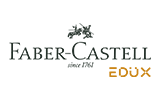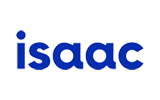“School is the place that delays the 21st century”
por Patrícia Gomes  25 de janeiro de 2012
25 de janeiro de 2012
tradução de Ana Pagliuso
No matter how it is called: education 3.0, education for the 21st century, education for life. But the truth is that many educators have realized that educational systems need to be adapted if they wish students to be able to handle the amount of information available today, skilled in managing increasingly complex problems and ready to be active in a market that demands skills not taught in the books. Aware of this gap between what the school offers and what the world demands, a group of experts decided to create the Gelp (Global Education Leaders’ Program) to discuss actual problems of education systems around the world and their possible solutions.
“There is no single answer or a single model to follow”, says David Albury, director of design and development of Gelp. Albury, who was adviser to the prime minister for strategic affairs between 2002 and 2005, has been talking to students and educators and knowing models worldwide. Given what has seen, Albury finds three important trends for the 21st century education: personalized learning, project-based learning and performance evaluation.
Personalized learning, he explains, does not necessarily mean the adoption of online educational platforms, but the configuration of learning for each student’s needs. “Technology is an essential part of this process, but is not the process”, he says. As an example of school that develops personalized learning, Albury cites the Swedish school Kunskapsskolan, in which students develop, with the help of tutors, their individual plans of study suited to their passions and affinities, with clear goals, which may be accompanied by throughout the year.
The project-based learning, says Albury, has been a choice that schools or groups of schools have done to develop skills in students in a less “compartmentalized” way. In this approach, students need to develop a project and, in the process, they learn concepts from different disciplines, work in teams and make decisions. Despite being a trend, says Albury, he does not know any public school system that uses the format in all its schools. “It is not needed to be adopted in the whole systems. This can happen as a pilot project”, he says. “We cannot expect start with perfect systems. It takes time to adjust, people make mistakes.”
About performance evaluations, he says, they arise in trying to measure and recognize skills that multiple choice tests cannot identify. “How can I assess if a student is creative? Or if he is good at solving real life problems?” asks Albury. This issue, which has overwhelmed educational leaders from around the world, is not answered, but, according to Albury, there are some attempts to use colleagues, family and community in building new ways to evaluate.
Another reality that has become increasingly clear is that very rich educational processes have occurred outside of school. Albury explains that he was in a meeting with 13 years old Canadian students. One said: “When I come to school, I feel I’m losing power. Outside of school, I have access to multiple information sources. At school, I have a teacher, a book, maybe a computer.” His colleague concluded: “The school is the place that delays the 21st century.”
Bringing education that occurs outside school inside is another challenge for teachers who need to reshape the way they deal with the profession. “It’s also a question of identity of teachers.” Therefore, the participation of universities is critical. In this aspect, the expert says, the demographics of Brazil is more favorable than of European countries, where there are few teachers graduating and many are in business for many years. “More difficult than learning is unlearning” said Albury.
Brazilian team
Formed four years ago, the Gelp began with four members: Ontario (Canada), New York (USA), Victoria (Australia) and England. Last year, Brazil became part of Gelp, which now has 13 members, including cities, states and countries. Among the Brazilian representatives are Rio de Janeiro’s City Office and the States Offices from the state of São Paulo, Goiás and Pernambuco. Participants meet twice a year and, virtually, comprise a network of activities throughout the year. In November, Rio de Janeiro will host the second meeting of 2012.
Albury was at Porvir talking to Brazilian journalists that cover education.
Article published in portuguese in 09/25/2012










